Ever wondered why everyone’s talking about collagen? This post will give you the facts and explain 9 amazing benefits of collagen.

The more “Benefits of” articles I post on this site (like the 9 Amazing Benefits of Lemon Water and the 9 Shocking Benefits of Sauerkraut), the more questions I get asked to answer about superfoods and how they can improve your health.
And I think that’s pretty cool.
Because it reinforces to me that more and more people are looking to live a healthy lifestyle. It’s a win-win in so many ways.
A healthy lifestyle means eating clean. And eating clean means that you are moving away from habits like eating a lot of packaged foods and added sugars. You are enjoying the goodness of whole foods and learning what it’s like to feel healthy and energized.
When I was posed the question about collagen and the health benefits, I decided to dive right in, knowing that I was going to learn a thing or two myself. And I did.
Let’s take a look, shall we?
WHAT IS COLLAGEN?
Collagen is protein in the body. It’s the protein found the most, in fact. Remember in past posts we have talked about protein being a building block in the body? Well, collagen is a pretty important component of strengthening tendons, ligaments, skin, and muscles. Collagen is even found in the teeth and blood vessels.
Although there are well over 20 kinds of collagen, five types are most noted.
- Type I provides structure to the connective tissue, teeth, bones, tendons, skin, and more.
- Type II is mostly for cushioning the joints.
- Type III is found in the arteries, muscles, and organs.
- Type IV supports the skin.
- Type V is important for the eyes (mainly the cornea) and bones
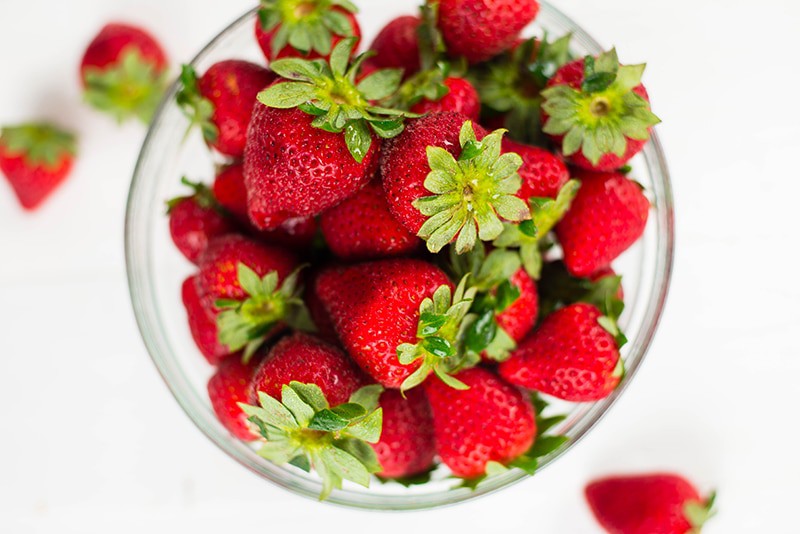
WHAT IS THE BEST WAY TO GET COLLAGEN?
Vitamin C is essential to collagen. You see, in the body, collagen is first procollagen. It’s processed and changed by the combination of proline and glycine, two amino acids. Vitamin C is essential to the process. Lysine is a third amino acid helpful to the production of collagen.
To get the vitamin C you need, eat bell peppers, kiwis, strawberries, peaches, pears, pineapple, and unsweetened juices like grapefruit and orange.
Proline is supplied in cottage cheese, beef, soy, pork, and gelatin (powders and desserts).
Some people will eat pork products like pork skin snacks to get glycine. You can also find it in chicken, lamb, crustaceans like crab, and gelatin.
Copper is also important when it comes to collagen production. Look to organ meats, lentils, cashews, and sesame seeds.
To boost your intake of lysine, eat pork, red meat, and poultry. Cod and sardines are good sources of lysine, as are eggs and tofu.
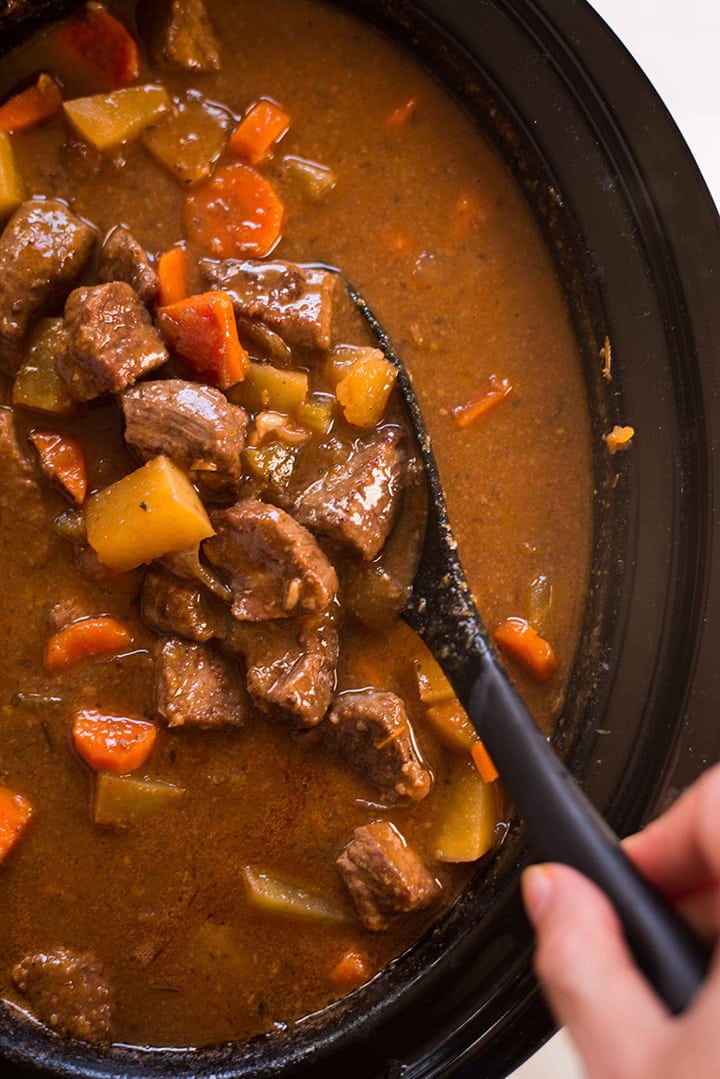
WHAT FOODS BOOST COLLAGEN?
Although collagen is easily taken in a supplement, getting things your body needs via a food source is always best. Not all supplements are regulated for one thing, and the nutrients from foods are more readily absorbed and used.
- Bone broth is the top food source of collagen, although some studies say a supplement may be just as good. To get the best bone broth, make your own. Bone broth does have a lot going for it, because it contains magnesium, glucosamine, collagen, and amino acids, to name a few.
- Tomatoes have a lot of vitamin C, essential for the production of collagen. They also contain lycopene, which is good for the skin.
- Copper, as mentioned, is key to collagen production and found in nuts. Cashews are copper powerhouses.
- Beans are excellent fiber sources, and also contain the all-important copper.
- Fruits are top-notch for vitamin C. Eat lots of blueberries, raspberries, guavas, grapefruit, and mangos.
- Eggs have many benefits. Egg whites, in particular, contain a lot of proline.
- When you cut up chicken, you no doubt see the connective tissue. This is why chicken is a good source of collagen.
ARE COLLAGEN SUPPLEMENTS HEALTHY?
Yes, collagen supplements are healthy and many people choose to get their collagen that way.
I haven’t touched on collagen supplements very much, but they may cause heartburn for some people. Also, if you are allergic to the source of the collagen supplement or ingredients in it (say seafood for example), you could have a reaction.
Be sure to buy a high-quality supplement and look for pills or a powder that is regulated, so you know that you are getting what you’ve paid for.
That being said, my fave way to get collagen is through your food, as part of your healthy, well-balanced diet.
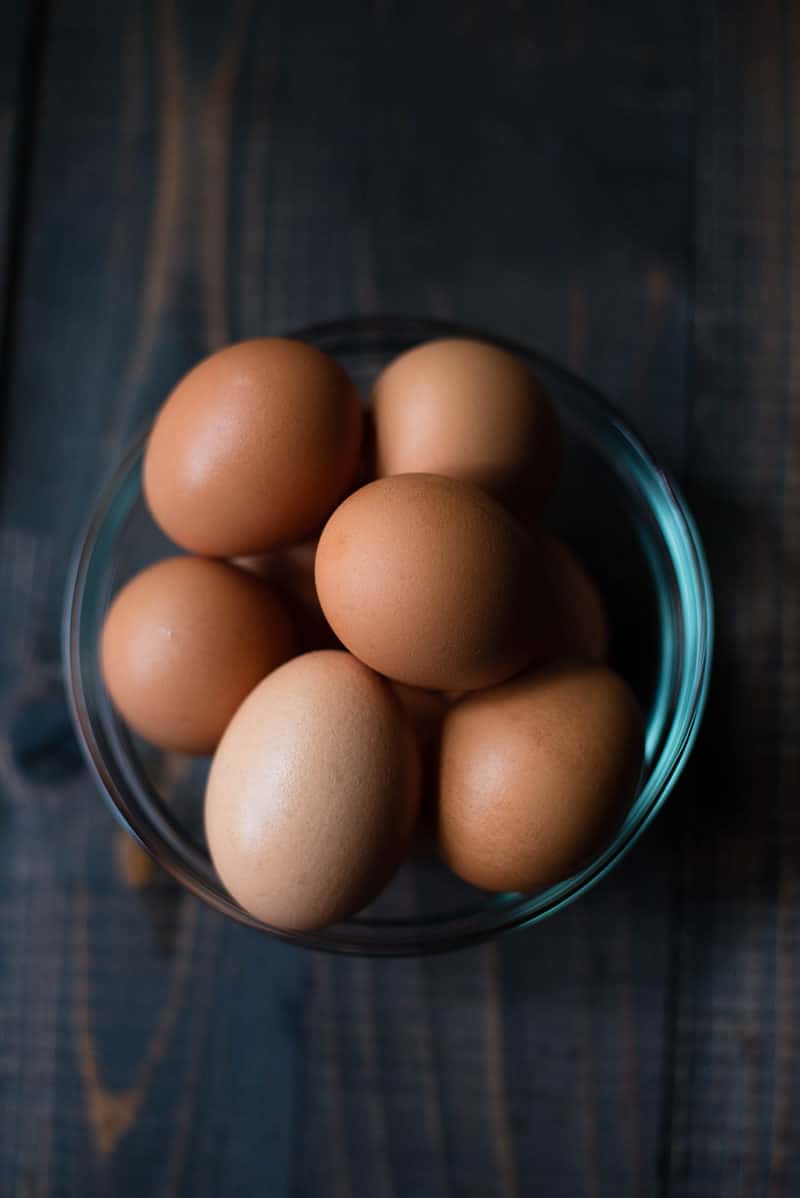
IS COLLAGEN DIGESTIBLE?
Yes, collagen is digestible. But it’s a little more complicated than that. This is how it works. Collagen is broken down in the process of digestion. Then, it’s absorbed into the bloodstream.
With supplements, the collagen is typically hydrolyzed, meaning amino acids are broken down into peptides, which are then easily absorbed. Hydrolyzing allows for easy mixture into liquids and that’s why many people add supplements to a drink like water or juice.
With food, the amino acids coming from protein food sources work to support the production of collagen. The body breaks them down (as opposed to the hydrolyzed supplements) to aid collagen production. The amino acids are important (remember the lysine, proline, and glycine) to processing the collagen, as I said before. Eating foods with these amino acids boosts collagen production.
I explain a lot about protein, amino acids, and incomplete/complete proteins in my post The Ultimate Guide to the Best Vegan Protein Substitutes if you’d like to be more in the know.
WHAT DOES COLLAGEN DO FOR THE BODY?
So, here we go. Let’s look at the 9 benefits of collagen, whether taken as a supplement or in food:
1. COLLAGEN MAY BOOST HEART HEALTH
A trial in 2017 showed that participants who took the presented collagen supplement twice a day for 6 months experienced promising results. The prevention and treatment of atherosclerosis (fatty deposits and plaque build up in the arteries) were observed.
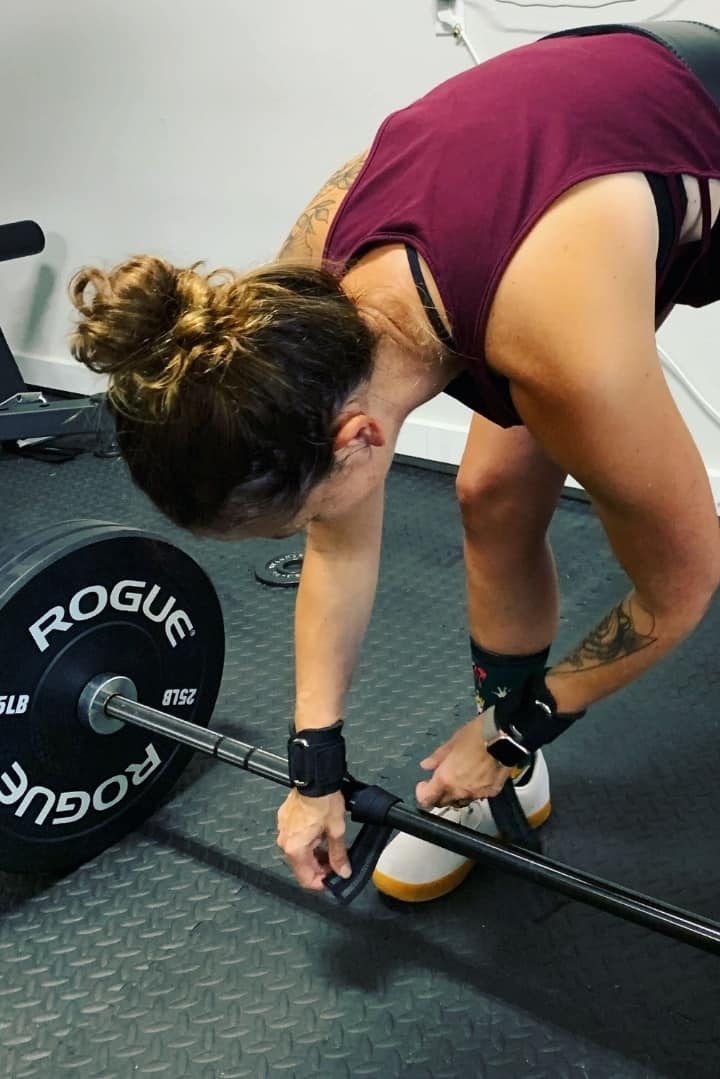
2. COLLAGEN MAY INCREASE MUSCLE MASS
Loss of muscle mass and strength is often correlated to age, activity level, and gender. Collagen may be instrumental in boosting muscle mass. It’s important to note that the consumption of collagen along with exercise proves even more beneficial. Want to learn the best time to work out? Take a look here!
3. COLLAGEN AIDS IN THE PREVENTION OF BONE LOSS
Post-menopausal women were enrolled in a 3-month study which proved that consuming collagen improved bone mineral density. Osteoporosis is one illness that may be inhibited by an increase of collagen in the body.
4. COLLAGEN SUPPORTS THE BRAIN
Protection against diseases like Alzheimer’s may be provided by collagen. The neurons in the brain may be protected with an increase in collagen intake.
5. COLLAGEN MAY REDUCE JOINT PAIN
As we age, the amount of collagen in the body decreases This is one reason why joint pain is more prevalent. One study, for example, showed that knee pain was significantly reduced in participants given collagen derived from chicken cartilage.
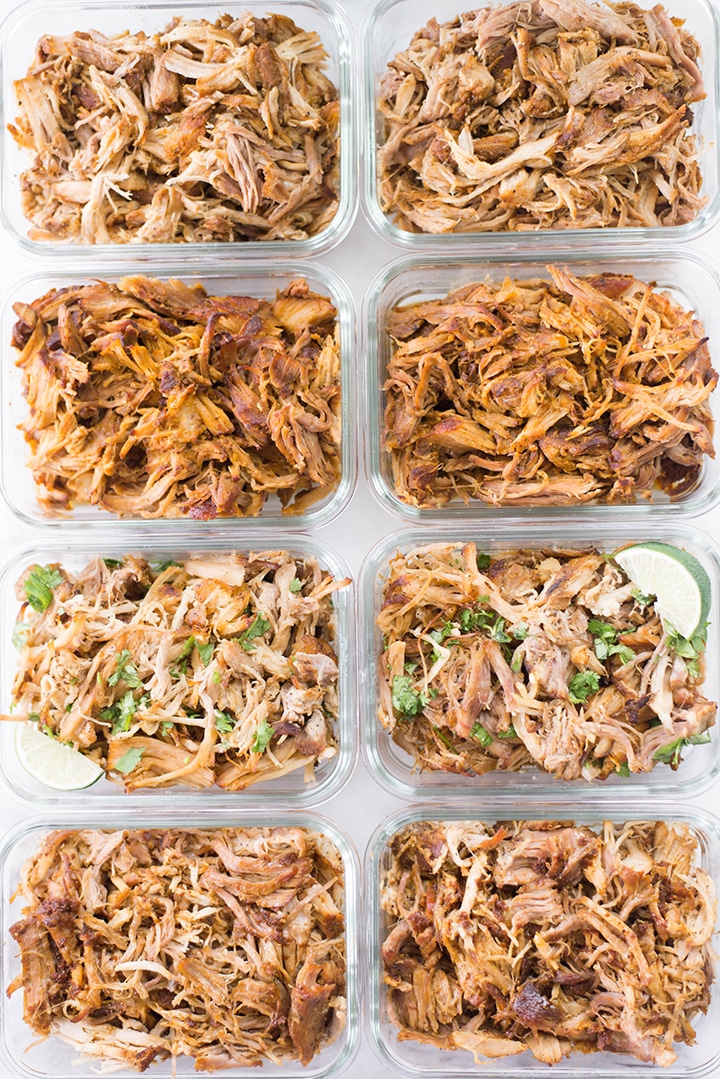
6. COLLAGEN MAY IMPROVE SKIN HEALTH
The loss of collagen in the skin as we get older is pretty evident in the wrinkles we see. Numerous trials have been undertaken with promising results. Wrinkle reduction and better skin hydration were documented in women who drank a beverage with collagen in it over a 12-week span.
7. COLLAGEN MAY IMPROVE GUT HEALTH
Alaskan pollock skin, a great source of collagen, was used in a study to determine the value when used against inflammation and damage to the intestinal lining. This is supported by documentation of the collagen levels of patients with inflammatory bowel disease, which was decreased.
8. COLLAGEN MAY SUPPORT BACK HEALTH
Although more studies are needed, it is thought that long-term supplementation with collagen may be indicated in the reduction of back pain.
9. COLLAGEN MAY STRENGTHEN NAILS
Do you have brittle nails? Give collagen a try. Up your intake by eating some of the foods I mentioned. Nail strength was a benefit seen in women who supplemented their collagen intake, and they found their nails to be less brittle after as little as 4 weeks.
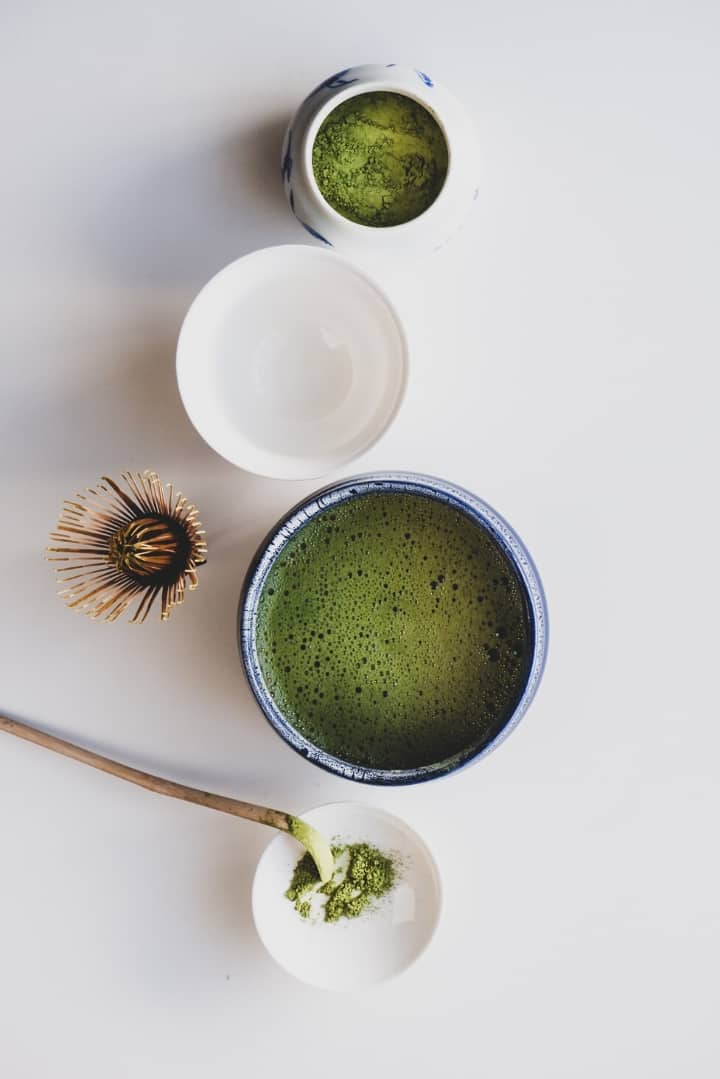
MORE FOODS WITH HEALTHY BENEFITS
Looking for more posts on beneficial foods? Take a look here:
- 12 Amazing Benefits of Ginger
- 10 Amazing Benefits of Turmeric: More Thank Just For Inflammation!
- 11 Proven Health Benefits of Chocolate: Is It OK To Eat Chocolate Every Day?
- 10 Surprising Benefits of Flaxseed Meal
- 10 Benefits of Eggs and Why You Should Eat Them More Often!
- 11 Crazy Awesome Benefits of Chia Seeds
- 10 Benefits of Green Tea | Why You Should Drink It Every Day!
This post contains affiliate links to products I use regularly and highly recommend.
The post 9 Awesome Benefits of Collagen appeared first on A Sweet Pea Chef.
https://ift.tt/3oiwRQYEver wondered why everyone’s talking about collagen? This post will give you the facts and explain 9 amazing benefits of collagen.

The more “Benefits of” articles I post on this site (like the 9 Amazing Benefits of Lemon Water and the 9 Shocking Benefits of Sauerkraut), the more questions I get asked to answer about superfoods and how they can improve your health.
And I think that’s pretty cool.
Because it reinforces to me that more and more people are looking to live a healthy lifestyle. It’s a win-win in so many ways.
A healthy lifestyle means eating clean. And eating clean means that you are moving away from habits like eating a lot of packaged foods and added sugars. You are enjoying the goodness of whole foods and learning what it’s like to feel healthy and energized.
When I was posed the question about collagen and the health benefits, I decided to dive right in, knowing that I was going to learn a thing or two myself. And I did.
Let’s take a look, shall we?
WHAT IS COLLAGEN?
Collagen is protein in the body. It’s the protein found the most, in fact. Remember in past posts we have talked about protein being a building block in the body? Well, collagen is a pretty important component of strengthening tendons, ligaments, skin, and muscles. Collagen is even found in the teeth and blood vessels.
Although there are well over 20 kinds of collagen, five types are most noted.
- Type I provides structure to the connective tissue, teeth, bones, tendons, skin, and more.
- Type II is mostly for cushioning the joints.
- Type III is found in the arteries, muscles, and organs.
- Type IV supports the skin.
- Type V is important for the eyes (mainly the cornea) and bones

WHAT IS THE BEST WAY TO GET COLLAGEN?
Vitamin C is essential to collagen. You see, in the body, collagen is first procollagen. It’s processed and changed by the combination of proline and glycine, two amino acids. Vitamin C is essential to the process. Lysine is a third amino acid helpful to the production of collagen.
To get the vitamin C you need, eat bell peppers, kiwis, strawberries, peaches, pears, pineapple, and unsweetened juices like grapefruit and orange.
Proline is supplied in cottage cheese, beef, soy, pork, and gelatin (powders and desserts).
Some people will eat pork products like pork skin snacks to get glycine. You can also find it in chicken, lamb, crustaceans like crab, and gelatin.
Copper is also important when it comes to collagen production. Look to organ meats, lentils, cashews, and sesame seeds.
To boost your intake of lysine, eat pork, red meat, and poultry. Cod and sardines are good sources of lysine, as are eggs and tofu.

WHAT FOODS BOOST COLLAGEN?
Although collagen is easily taken in a supplement, getting things your body needs via a food source is always best. Not all supplements are regulated for one thing, and the nutrients from foods are more readily absorbed and used.
- Bone broth is the top food source of collagen, although some studies say a supplement may be just as good. To get the best bone broth, make your own. Bone broth does have a lot going for it, because it contains magnesium, glucosamine, collagen, and amino acids, to name a few.
- Tomatoes have a lot of vitamin C, essential for the production of collagen. They also contain lycopene, which is good for the skin.
- Copper, as mentioned, is key to collagen production and found in nuts. Cashews are copper powerhouses.
- Beans are excellent fiber sources, and also contain the all-important copper.
- Fruits are top-notch for vitamin C. Eat lots of blueberries, raspberries, guavas, grapefruit, and mangos.
- Eggs have many benefits. Egg whites, in particular, contain a lot of proline.
- When you cut up chicken, you no doubt see the connective tissue. This is why chicken is a good source of collagen.
ARE COLLAGEN SUPPLEMENTS HEALTHY?
Yes, collagen supplements are healthy and many people choose to get their collagen that way.
I haven’t touched on collagen supplements very much, but they may cause heartburn for some people. Also, if you are allergic to the source of the collagen supplement or ingredients in it (say seafood for example), you could have a reaction.
Be sure to buy a high-quality supplement and look for pills or a powder that is regulated, so you know that you are getting what you’ve paid for.
That being said, my fave way to get collagen is through your food, as part of your healthy, well-balanced diet.

IS COLLAGEN DIGESTIBLE?
Yes, collagen is digestible. But it’s a little more complicated than that. This is how it works. Collagen is broken down in the process of digestion. Then, it’s absorbed into the bloodstream.
With supplements, the collagen is typically hydrolyzed, meaning amino acids are broken down into peptides, which are then easily absorbed. Hydrolyzing allows for easy mixture into liquids and that’s why many people add supplements to a drink like water or juice.
With food, the amino acids coming from protein food sources work to support the production of collagen. The body breaks them down (as opposed to the hydrolyzed supplements) to aid collagen production. The amino acids are important (remember the lysine, proline, and glycine) to processing the collagen, as I said before. Eating foods with these amino acids boosts collagen production.
I explain a lot about protein, amino acids, and incomplete/complete proteins in my post The Ultimate Guide to the Best Vegan Protein Substitutes if you’d like to be more in the know.
WHAT DOES COLLAGEN DO FOR THE BODY?
So, here we go. Let’s look at the 9 benefits of collagen, whether taken as a supplement or in food:
1. COLLAGEN MAY BOOST HEART HEALTH
A trial in 2017 showed that participants who took the presented collagen supplement twice a day for 6 months experienced promising results. The prevention and treatment of atherosclerosis (fatty deposits and plaque build up in the arteries) were observed.

2. COLLAGEN MAY INCREASE MUSCLE MASS
Loss of muscle mass and strength is often correlated to age, activity level, and gender. Collagen may be instrumental in boosting muscle mass. It’s important to note that the consumption of collagen along with exercise proves even more beneficial. Want to learn the best time to work out? Take a look here!
3. COLLAGEN AIDS IN THE PREVENTION OF BONE LOSS
Post-menopausal women were enrolled in a 3-month study which proved that consuming collagen improved bone mineral density. Osteoporosis is one illness that may be inhibited by an increase of collagen in the body.
4. COLLAGEN SUPPORTS THE BRAIN
Protection against diseases like Alzheimer’s may be provided by collagen. The neurons in the brain may be protected with an increase in collagen intake.
5. COLLAGEN MAY REDUCE JOINT PAIN
As we age, the amount of collagen in the body decreases This is one reason why joint pain is more prevalent. One study, for example, showed that knee pain was significantly reduced in participants given collagen derived from chicken cartilage.

6. COLLAGEN MAY IMPROVE SKIN HEALTH
The loss of collagen in the skin as we get older is pretty evident in the wrinkles we see. Numerous trials have been undertaken with promising results. Wrinkle reduction and better skin hydration were documented in women who drank a beverage with collagen in it over a 12-week span.
7. COLLAGEN MAY IMPROVE GUT HEALTH
Alaskan pollock skin, a great source of collagen, was used in a study to determine the value when used against inflammation and damage to the intestinal lining. This is supported by documentation of the collagen levels of patients with inflammatory bowel disease, which was decreased.
8. COLLAGEN MAY SUPPORT BACK HEALTH
Although more studies are needed, it is thought that long-term supplementation with collagen may be indicated in the reduction of back pain.
9. COLLAGEN MAY STRENGTHEN NAILS
Do you have brittle nails? Give collagen a try. Up your intake by eating some of the foods I mentioned. Nail strength was a benefit seen in women who supplemented their collagen intake, and they found their nails to be less brittle after as little as 4 weeks.

MORE FOODS WITH HEALTHY BENEFITS
Looking for more posts on beneficial foods? Take a look here:
- 12 Amazing Benefits of Ginger
- 10 Amazing Benefits of Turmeric: More Thank Just For Inflammation!
- 11 Proven Health Benefits of Chocolate: Is It OK To Eat Chocolate Every Day?
- 10 Surprising Benefits of Flaxseed Meal
- 10 Benefits of Eggs and Why You Should Eat Them More Often!
- 11 Crazy Awesome Benefits of Chia Seeds
- 10 Benefits of Green Tea | Why You Should Drink It Every Day!
This post contains affiliate links to products I use regularly and highly recommend.
The post 9 Awesome Benefits of Collagen appeared first on A Sweet Pea Chef.
Lacey Baier